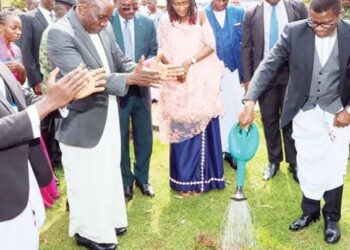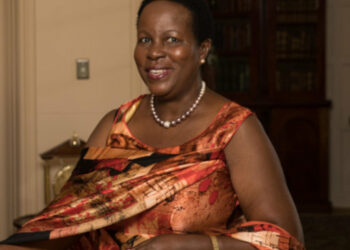Amidst the backdrop of forgotten journalism ethics, values, and conduct in Uganda’s media landscape, there emerges a compelling call for the adoption of Afri-Ethics.
As the world celebrates World Press Day, it’s imperative to reflect on the importance of preserving journalistic integrity and promoting ethical standards rooted in African cultural values and principles.In recent years, the media in Uganda, like in many parts of the world, has become increasingly commercialized, prioritizing profit over journalistic integrity. This trend has led to a erosion of trust in the media, as sensationalism, bias, and misinformation have become prevalent. In this environment, the need for a return to ethical journalism has never been more urgent.Afri-Ethics, rooted in the rich cultural heritage of Africa, offers a unique perspective on journalistic ethics and values.
At its core, Afri-Ethics emphasizes principles such as communalism, ubuntu, and respect for elders, which can serve as guiding principles for ethical journalism in Uganda and beyond.Communalism, one of the key tenets of Afri-Ethics, emphasizes the interconnectedness of individuals within a community. In the context of journalism, this principle underscores the importance of serving the public interest and prioritizing the well-being of society as a whole. Journalists have a responsibility to report truthfully and accurately, holding those in power accountable and giving voice to the marginalized and oppressed.Ubuntu, another central concept of Afri-Ethics, emphasizes the importance of compassion, empathy, and human dignity. In the context of journalism, ubuntu calls for respectful and dignified treatment of sources, subjects, and audiences. It reminds journalists of their duty to report with sensitivity and empathy, avoiding sensationalism, exploitation, and harm.Respect for elders is another important aspect of Afri-Ethics that can inform journalistic practice.
Elders are revered figures in African societies, valued for their wisdom, experience, and guidance. In the realm of journalism, this principle underscores the importance of respecting the wisdom and expertise of seasoned journalists and mentors, as well as seeking out diverse perspectives and voices within the community.In embracing Afri-Ethics, Ugandan journalists have an opportunity to reclaim the integrity and credibility of the media. By grounding their work in African cultural values and principles, journalists can build trust with their audiences and strengthen the social fabric of their communities. This requires a commitment to truth, fairness, and accountability, as well as a willingness to challenge power and privilege.
Moreover, Afri-Ethics offers a framework for navigating the complex ethical dilemmas that journalists often face in their work. Whether grappling with issues of privacy, conflict of interest, or editorial independence, Afri-Ethics provides a moral compass to guide journalists in making ethically sound decisions that uphold the integrity of their profession.
As Uganda and the world mark World Press Day, let us heed the call to embrace Afri-Ethics and uphold the highest standards of ethical journalism. In doing so, we can ensure that the media remains a beacon of truth, justice, and accountability, serving as a vital cornerstone of democracy and social progress.
Walukamba Aldon is a media consultant and communications manager at Kinyara Sugar Limited
Do you have a story in your community or an opinion to share with us: Email us at editorial@watchdoguganda.com













